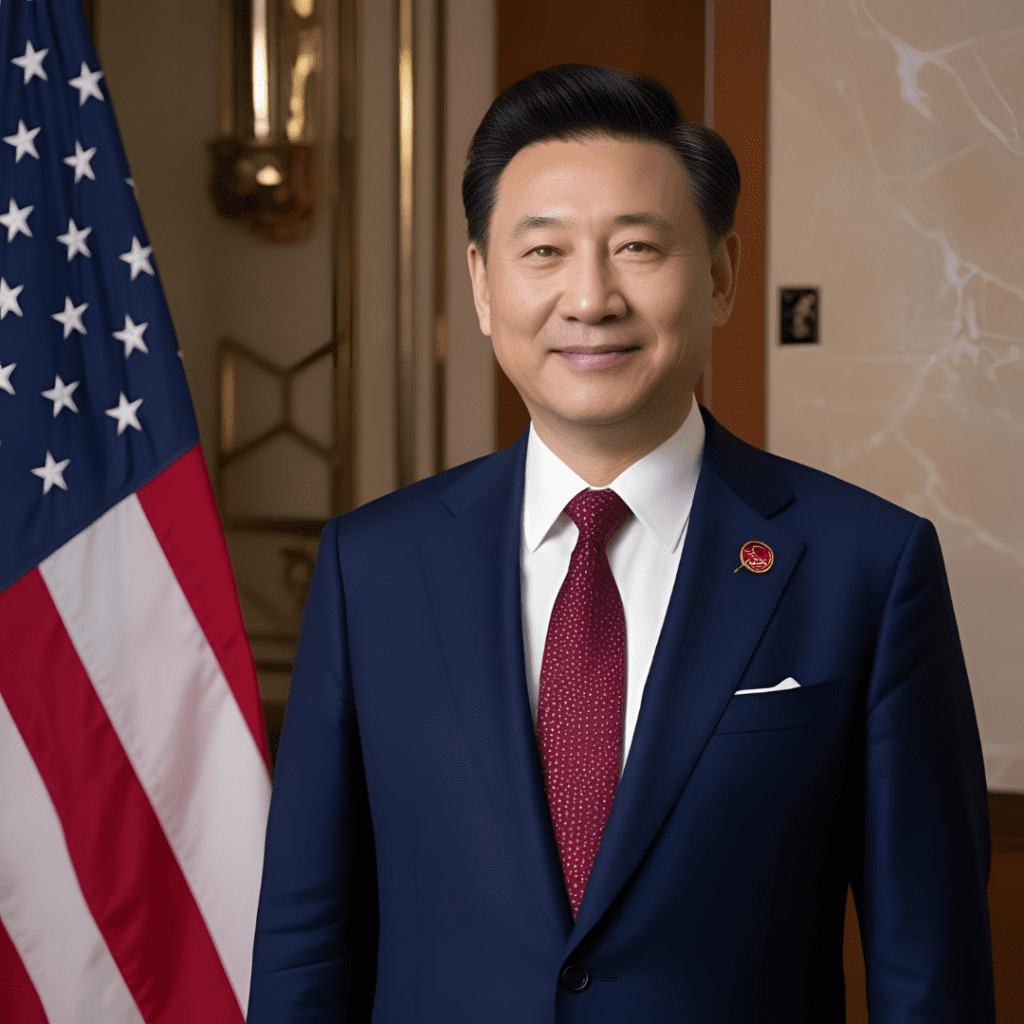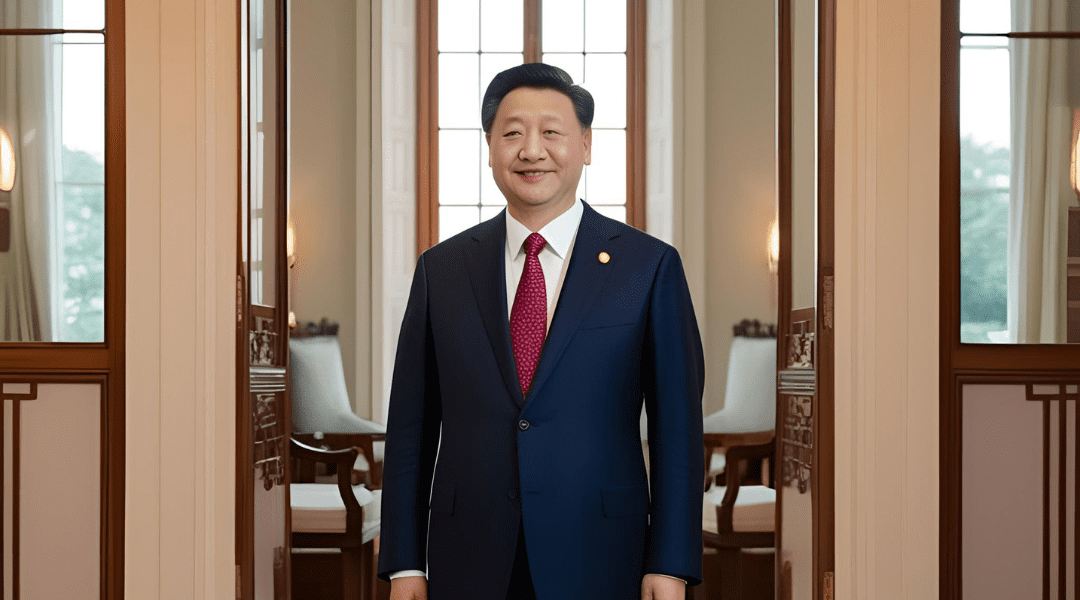China’s Ambassador Signals a Better Relationship with the U.S.

In recent years, the relationship between China and the United States has been characterized by tension, economic competition, and strategic rivalry. However, a recent statement by China’s ambassador to the United States, Xie Feng, has signaled a possible shift in the tone of bilateral relations. Speaking at a diplomatic forum, Xie Feng emphasized China’s willingness to engage with the U.S. as a partner rather than an adversary. This statement has sparked discussions among policymakers, analysts, and business leaders about the future of China-U.S. relations.
Historical Context of China-U.S. Relations
The relationship between China and the U.S. has been complex for decades. Since the normalization of diplomatic ties in 1979, both countries have engaged in extensive trade and economic cooperation while simultaneously competing for geopolitical influence. The past decade, however, has seen an escalation in tensions. The trade war initiated during the Trump administration led to increased tariffs on Chinese goods, restrictions on technology exports, and growing concerns over intellectual property theft. Additionally, conflicts over Taiwan, the South China Sea, and human rights issues have further strained diplomatic ties.
Despite these challenges, China and the U.S. remain economically interdependent. Bilateral trade between the two nations reached over $750 billion in 2022, highlighting the importance of maintaining stable relations. Xie Feng’s recent remarks suggest that China is interested in finding common ground to stabilize and improve this crucial relationship.
Key Points from Ambassador Xie Feng’s Statement
Ambassador Xie Feng’s speech focused on three main aspects: mutual respect, open communication, and win-win cooperation.
- Mutual Respect – The ambassador stressed that China does not seek confrontation with the U.S. but rather hopes to build a relationship based on mutual respect. He urged Washington to acknowledge China’s national interests, including its sovereignty over Taiwan and its economic development goals.
- Open Communication – Xie Feng highlighted the importance of direct dialogue between Chinese and American officials. He criticized the lack of diplomatic engagement in recent years and called for renewed efforts to maintain high-level exchanges.
- Win-Win Cooperation – The ambassador pointed out that economic collaboration benefits both nations. He encouraged increased business ties, scientific cooperation, and joint efforts to address global challenges such as climate change, food security, and pandemic preparedness.
Implications for U.S.-China Relations
The ambassador’s remarks could have several important implications for the future of U.S.-China relations.
1. Reduction of Trade Barriers
One possible outcome of improved relations could be the easing of trade restrictions. The U.S. and China have imposed numerous tariffs on each other’s goods, affecting businesses and consumers in both countries. If diplomatic talks gain momentum, we could see negotiations aimed at reducing these barriers, which would benefit industries such as technology, agriculture, and manufacturing.
2. Resumption of High-Level Dialogues
In the past, China and the U.S. have conducted high-level dialogues on trade, security, and global issues. However, these meetings have been infrequent in recent years. Xie Feng’s statement suggests a willingness to restart such discussions, which could help resolve disputes and prevent further deterioration of relations.
3. Cooperation on Global Issues
China and the U.S. are the world’s two largest economies and play key roles in addressing global challenges. Climate change, for example, requires joint efforts from both countries to reduce carbon emissions and develop clean energy solutions. If relations improve, we may see greater collaboration on international issues, benefiting not only the two nations but also the global community.
Challenges to a Better Relationship
Despite the positive tone of Xie Feng’s remarks, several obstacles could hinder the improvement of China-U.S. relations.
- Geopolitical Tensions – Issues such as Taiwan, the South China Sea, and human rights concerns remain major points of contention. The U.S. continues to support Taiwan through arms sales and diplomatic engagements, which China perceives as interference in its internal affairs.
- Technological Competition – The rivalry between China and the U.S. in the technology sector is intense, with restrictions on Chinese companies like Huawei and bans on certain U.S. exports to China. The U.S. government is also concerned about China’s advancements in artificial intelligence, semiconductor technology, and cybersecurity.
- Domestic Political Pressures – Both countries face internal political challenges that could affect diplomatic decisions. In the U.S., there is bipartisan support for a tough stance on China, particularly in areas related to trade and national security. Similarly, China’s leadership is focused on maintaining its economic stability and national sovereignty.
Future Outlook
While Xie Feng’s statement is a positive development, the road to improved relations will require significant diplomatic efforts from both sides. A few potential developments to watch include:
- Bilateral Meetings – Future meetings between Chinese and American leaders will indicate whether both nations are serious about reducing tensions.
- Economic Agreements – Any new trade agreements or reductions in tariffs could signal progress in economic cooperation.
- Military and Security Discussions – Open dialogue on security issues, particularly in the Indo-Pacific region, will be crucial to avoiding conflicts.
Conclusion
Ambassador Xie Feng’s remarks offer a glimmer of hope for improved U.S.-China relations. While challenges remain, his emphasis on mutual respect, open communication, and cooperation suggests that China is interested in finding a path forward. For the U.S., engaging in meaningful diplomacy with China could lead to economic benefits, enhanced global cooperation, and reduced geopolitical tensions. The coming months will be crucial in determining whether this shift in rhetoric translates into concrete actions that reshape the future of international relations.




